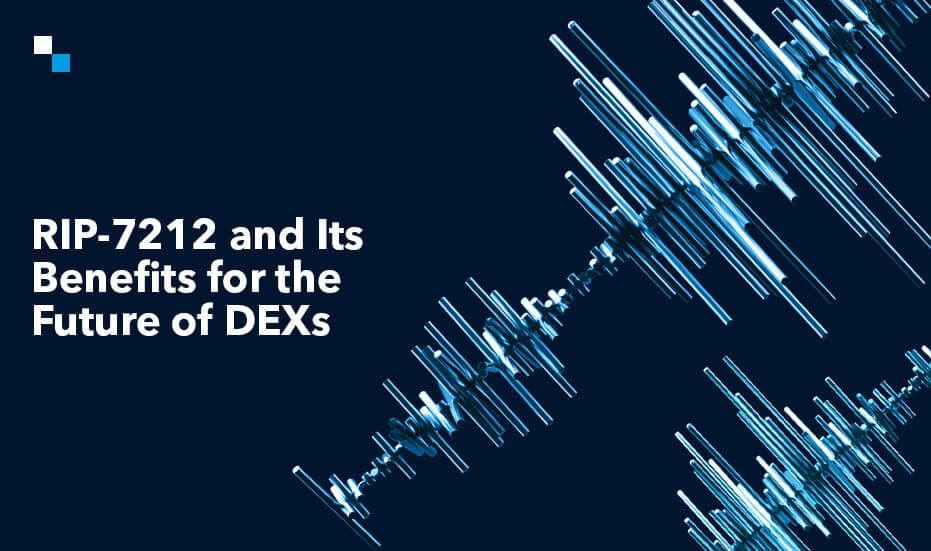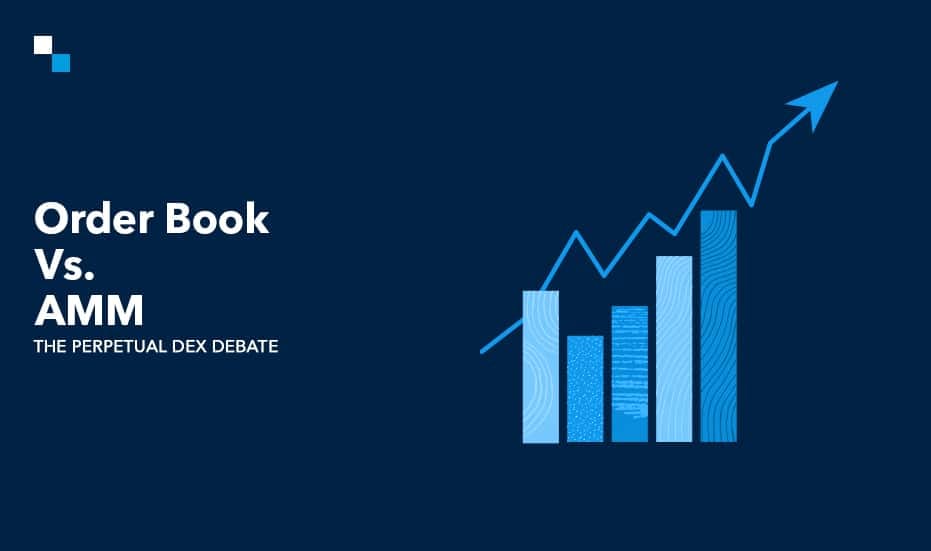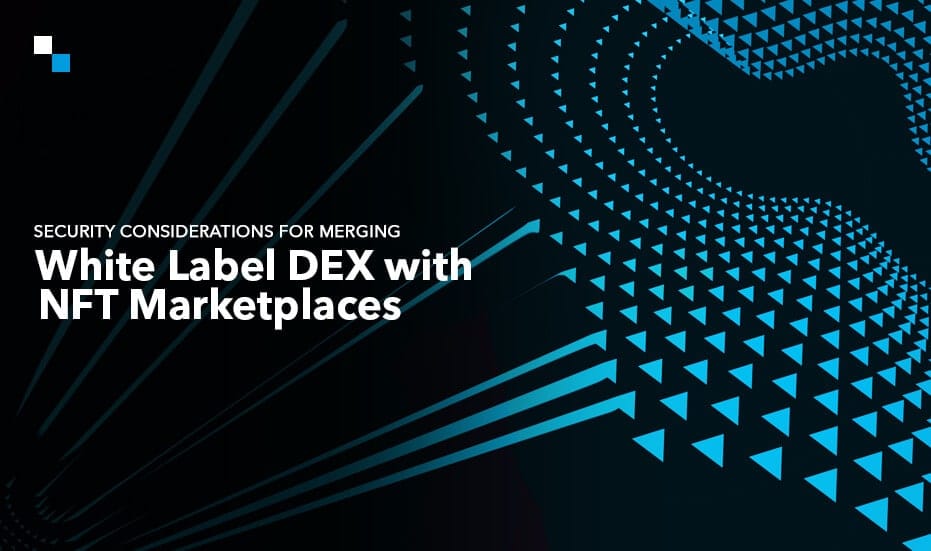
How Metaverse Real Estate Can Boost Your Investment Strategy?
July 1, 2024
AI in DeFi: A Powerful Collaboration Transforming Finance
July 2, 2024Introduction
Skip comparing adoption rates with their ancestral counterparts; it is undeniable that decentralized exchanges have made significant strides due to their ground-breaking innovations. As they continue to tread towards mass adoption while keeping the cryptoscape alive and thriving, Ethereum (the go-to blockchain for DEX development) explores scaling solutions to accommodate growing trading volumes and enhance the customer experience. Traditionally, high transaction costs and slow processing times plague the transactional experience on Ethereum DEXs. While rollup scaling solutions offer a promising path to overcoming scalability limitations, DEX development with rollups still faces challenges.
Enter RIP-7212, the first rollup improvement proposal aspiring to streamline DEX operations on rollups by introducing a precompiled contract for the secp256r1 curve. Let’s dive deep into its details, benefits, and considerations for the Ethereum ecosystem.
Understanding Signature Verification in DEXs
Decentralized exchange software solutions confirm the validity and security of ownership transfers (of digital assets) through a cryptographic process known as signature verification. The process entails verifying that the private key associated with a specific wallet address has signed the transaction. This process of authorizing the transfer of tokens might seem straightforward. Still, it can be computationally expensive on the Ethereum Virtual Machine (EVM), translating to higher gas fees and a disrupted user experience on DeFi exchange software.
How RIP 7212 Aims To Address the Challenge
RIP-7212 proposes the integration of precompiled contracts into Ethreum rollups to enable efficient verification of sep256r1 signatures. The aim of these special smart contracts (pre-written code snippets embedded directly within the Ethereum protocol) is to enable cheap, secure, and fast P256 curve verification on the EVM. It further improves the decentralized exchange software experience. The pre-compiled smart contracts leverage elliptic curve cryptography (ECC) and the secp256r1 curve to enable efficient verification of signatures. To learn how the RIP 7212 dissolves signature verification challenges and enhances the DeFi exchange software experience, it is crucial to learn about these two components of the proposal:

ECC is a form of public-key cryptography based on the algebraic structure of elliptic curves over finite fields. ECC offers similar levels of security to other cryptographic systems, such as RSA, but with significantly smaller key sizes, resulting in faster computations and reduced storage requirements. RIP-7212 leverages ECC to ensure the efficiency, scalability, and, most importantly, security performance of cryptographic operations.
The secp256r1 curve (or P-256) is a widely used elliptic curve employed in various security protocols and hardware implementations, including TLS/SSL for secure internet communications and secure enclaves in devices like smartphones for biometric authentication. The secp256r1 integration improves interoperability with mainstream technologies and fosters the overall efficiency of cryptographic operations on the network.
Benefits of RIP-7212 Implementation
RIP-7127 is advantageous not only for the future of DEX development but also for the overall Ethereum ecosystem. The precompiled contract is optimized for performance and low gas fees, making it significantly more efficient than traditional P256 signature verification methods.
Let’s now discuss some of the benefits of RIP-7212 implementation:
- Faster Execution: Written in low-level assembly language, precompiled contracts allow for a comparatively fierce execution than smart contracts written in Solidity (a high-level language commonly used for Ethereum DEX development).
- Gas Efficiency: RIP 7212 significantly slashes overhead associated with signature verification, leading to instantaneous transactions and lower gas fees. It only costs 3450 gas to verify P256 transactions with RIP 7212 integration, a whopping 100x deduction compared to the best traditional option.
- Interoperability: A precompiled contract for signature verification can establish a standardized approach across decentralized exchange software solutions built on rollups, promoting interoperability between different Ethereum-based applications.
- Security: RIP-7212 provides a secure way to verify P256 signatures, ensuring data integrity. It is beneficial for all the stakeholders across the blockchain ecosystem.
- Reduced Development Time: DEX developers won’t need to build their custom signature verification logic. They can leverage the precompiled contract, saving DEX development time and resources.
Here’s a code snippet demonstrating how the precompiled contract can be used for secp256r1 signature verification:
| // SPDX-License-Identifier: MIT
pragma solidity ^0.8.0; contract Secp256r1Verifier { address constant precompile = 0x0000000000000000000000000000000000000404; function verify( bytes32 messageHash, bytes memory signature, bytes memory publicKey ) public view returns (bool) { bytes memory input = abi.encodePacked(messageHash, signature, publicKey); (bool success, bytes memory output) = precompile.staticcall(input); require(success, “Verification failed”); return abi.decode(output, (bool)); } } |
In this snippet, 0x0000000000000000000000000000000000000404 represents the address of the precompiled contract for secp256r1 verification. The verify function takes the message hash, signature, and public key, encodes them into a single input, and calls the precompiled contract to check the signature’s validity.
The Current State of RIP-7212
Several leading blockchain projects, including Kakarot, Polygon, Optimism, zkSync, and Arbitrum, have already committed to implementing this game-changer protocol.
Polygon has even dispatched RIP-7212 to its test network and is finally ready to become the first public network to implement it.
However, the current state doesn’t define its future potential. The use cases for RIP-7212 are vast. Apart from their efficiency in simplifying signature verification and enhancing DEX development, they can be leveraged to facilitate 2FA for rollups. Their utility also extends to confirming remote attestations of Trusted Execution Environments (TEE) for decentralized block-building.

Crucial Considerations For RIP 7212 Implementation
While RIP-7212 presents an optimistic solution for DEX development and the whole blockchain ecosystem, there are various challenges to consider for its integration, such as:
- Security Audits
Though the precompiled contract comes from a prestigious institution, it is still crucial to ensure the integrity and robustness of the verification process before the final integration.
- Community Approval
Ultimately, the adoption of RIP 7212 is in the hands of the community. Community discussions and approvals within the Ethereum governance process are going to decide the future of RIP- 7212 and DEX development.
- Rollup Compatibility
The proposed precompiled contract needs to be compatible with various rollup solutions in the Ethereum ecosystem. So, it is essential to do thorough research before finally stepping into the era of signature transaction verification.
Final Word
Rollup Improvement Proposal 7212 marks a significant milestone in Ethereum Layer 2. By streamlining the signature verification process, the implementation enables enhanced security, scalability, reduced costs, and an improved user experience, paving the path not just for efficient DEX development but wider blockchain adoption.
As the proposal undergoes further discussions and refinements, it is opined to revolutionize transaction settlement systems and reshape the future of blockchain interactions with rollups.



